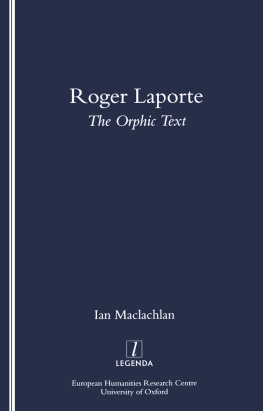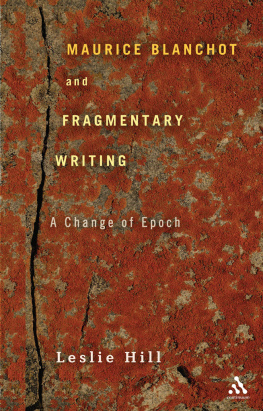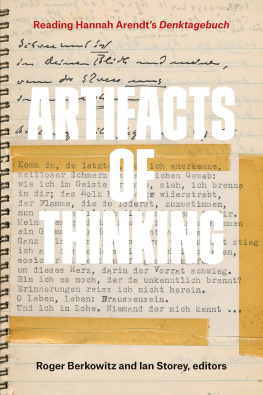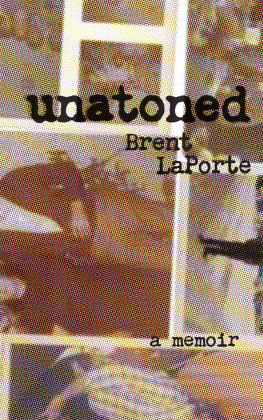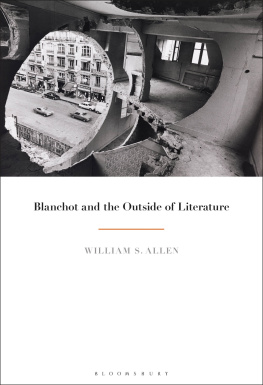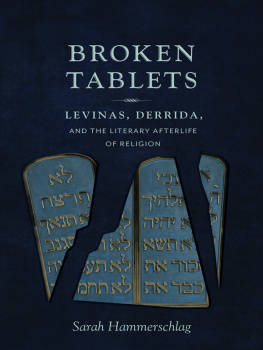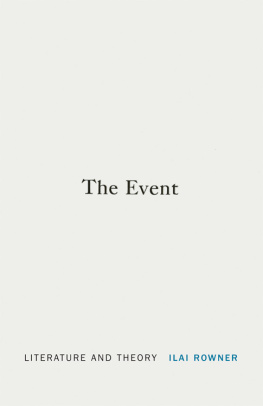ROGER LAPORTE
THE ORPHIC TEXT
The European Humanities Research Centre
UNIVERSITY OF OXFORD
The European Humanities Research Centre of the University of Oxford organizes a range of academic activities, including conferences and workshops, and publishes scholarly works under its own imprint, LEGENDA. Within Oxford, the EHRC bridges, at the research level, the main humanities faculties: Modern Languages, English, Modern History, Literae Humaniores, Music and Theology. The Centre stimulates interdisciplinary research collaboration throughout these subject areas and provides an Oxford base for advanced researchers in the humanities.
The Centre's publications programme focuses on making available the results of advanced research in medieval and modern languages and related interdisciplinary areas. An Editorial Board, whose members are drawn from across the British university system, covers the principal European languages. Titles include works on French, German, Italian, Portuguese, Russian and Spanish literature. In addition, the EHRC co-publishes with the Society for French Studies, the British Comparative Literature Association and the Modern Humanities Research Association. The Centre also publishes Oxford German Studies and Film Studies, and has launched a Special Lecture Series under the LEGENDA imprint.
Enquiries about the Centre's publishing activities should be addressed to:
Professor Malcolm Bowie, Director
Further information:
Kareni Bannister, Senior Publications Officer
European Humanities Research Centre
University of Oxford
47 Wellington Square, Oxford OXI 2JF
enquiries@ehrc.ox.ac.uk
www.ehrc.ox.ac.uk
Legenda Editorial Board
Chairman
Professor Malcolm Bowie, All Souls College
Editorial Coordinator for French
Dr Nicola Luckhurst, Somerville College
Professor Ian Maclean, All Souls College (French)
Professor Marian Hobson Jeanneret, Queen Mary,
University of London (French)
Professor Ritchie Robertson, St John's College (German)
Professor Lesley Sharpe, University of Bristol (German)
Dr Diego Zancani, Balliol College (Italian)
Professor David Robey, University of Reading (Italian)
Dr Stephen Parkinson, Linacre College (Portuguese)
Professor Helder Macedo, Kings College London (Portuguese)
Professor Gerald Smith, New College (Russian)
Professor David Shepherd, University of Sheffield (Russian)
Dr David Pattison, Magdalen College (Spanish)
Professor Alison Sinclair, Clare College, Cambridge (Spanish)
Dr Elinor Shaffer, School of Advanced Study, London
(Comparative Literature)
Senior Publications Officer
Kareni Bannister
Publications Officer
Dr Graham Nelson
LEGENDA
EUROPEAN HUMANITIES RESEARCH CENTRE
University of Oxford
Roger Laporte
The Orphic Text
Ian Maclachlan
First published 2000
Published by the European Humanities Research Centre of the University of Oxford 47 Wellington Square Oxford OX1 2JF
LEGENDA is the publications imprint of the European Humanities Research Centre
Published 2017 by Routledge
2 Park Square, Milton Park, Abingdon, Oxon OX14 4RN
711 Third Avenue, New York, NY 10017, USA
Routledge is an imprint of the Taylor & Francis Group, an informa business
European Humanities Research Centre of the University of Oxford 2000
ISBN 13: 978-1-900755-38-2 (pbk )
All rights reserved. No part of this publication may be reproduced or disseminated or transmitted in any form or by any means, electronic, mechanical, photocopying, recording or otherwise, or stored in any retrieval system, or otherwise used in any manner whatsoever without the express permission of the copyright owner
British Library Cataloguing in Publication Data
A CIP catalogue record for this book is available from the British Library
LEGENDA series designed by Cox Design Partnership, Witney, Oxon
Chief Copy-Editor: Genevieve Hawkins
Contents
Guide
Roger Laporte was born in Lyon in 1925 and for many years taught philosophy in Montpellier. Following three short rcits published in the 1950s, La Veille (1963) initiated a series of works exploring the experience of writing. It was followed by Une Voix de fin silence (1966), Une Voix de fin silence II: Pourquoi? (1967), Fugue (1970), Fugue: Supplement (1973), Fugue 3 (1976), Suite (1979), and Moriendo (1983). This series was collected as Une Vie in 1986. Selections from Laporte's extensive critical writings have been published as Quinze variations sur un thme biographique (1975) and Etudes (1990). Commentators on his work include Michel Foucault, Emmanuel Levinas, Jacques Derrida, Philippe Lacoue-Labarthe and Jean-Luc Nancy. Laporte was awarded the Prix France-Culture in 1978.
I am grateful to Adrianne Tooke, who supervised the Oxford D.Phil, dissertation from which this study emerged, for her patience and wise counsel. Michael Holland and Leslie Hill, who examined the dissertation, were most supportive on that occasion and have continued to be so. The publication of this volume would not have been possible without the generous financial support of the Carnegie Trust for the Universities of Scotland and the Arts Faculty Research Committee of the University of Aberdeen. I have always enjoyed a congenial working environment thanks to friends and colleagues at the Universities of Aberdeen, Leicester and Oxford. I should also like to express my gratitude to Roger Laporte for his kind support of my work. Finally, there is no doubt that I would not have found myself in the enviable position of being able to undertake work of this sort without the constant support and encouragement of my parents; this book is dedicated to my mother and to the memory of my father.
The following abbreviations are used for the works by Roger Laporte referred to most frequently.
i. Une Vie (Paris: P.O.L, 1986 )
The works collected in this volume are referred to according to the pagination of Une Vie, but preceded by the following abbreviations to indicate the individual works collected therein:
- V La Veille
- VFS Une Voix de fin silence
- P Une Voix defin silence II: Pourquoi?
- F Fugue
- FS Fugue: Supplment
- F3 Fugue j
- S Suite
- M Moriendo
ii. Other abbreviations
- B 'Bief in L'Arc 54 (1973), 'Jacques Derrida', 6570.
- C Carnets ( extraits ) (Paris: Hachette, 1979).
- DLMB Laporte and Nol, Deux Lectures de Maurice Blanchot (Montpellier: Fata Morgana, 1973).
- E Etudes (Paris: P.O.L, 1990).
- EDM Entre deux mondes (Montpellier: Gris Banal, 1988).
- LP Lettre personne (Paris: Plon, 1989).
- QV Quinze variations sur un thme biographique (Paris: Flammarion, 1975).
- SR 'Souvenir de Reims' et autres rcits (Paris: Hachette, 1979).
Chapter 1
Orphic Writing
On 24 February 1982, Roger Laporte ceased to be a writer. Since that time, to be sure, he has written and published a number of critical and occasional texts, but on completing the final 'Post-scriptum' of Moriendo, he ceased to write in his sense of the word, bringing to an end one of the most remarkable and distinctive undertakings in postwar French literature.
The aim of this study is to survey the entirety of Roger Laporte's literary enterprise, from the three short rcits of the 1950s to Moriendo, which marked the end of a series of works subtitled biographic initiated by Fugue in 1970. The publication in 1986 of a collected volume entitled Une Vie effectively extended the designation of biographie to the three volumes of the 1960s included therein. The term biographie is better seen as a marker of genre than as a subtitle, in fact, for Laporte's ambition is to institute a new type of writing; what exactly is at stake in this ambition will be fully explored later, will draw on all of his published work, but my overriding concern will be with the paradoxically concluded but interminable project of biographie.

